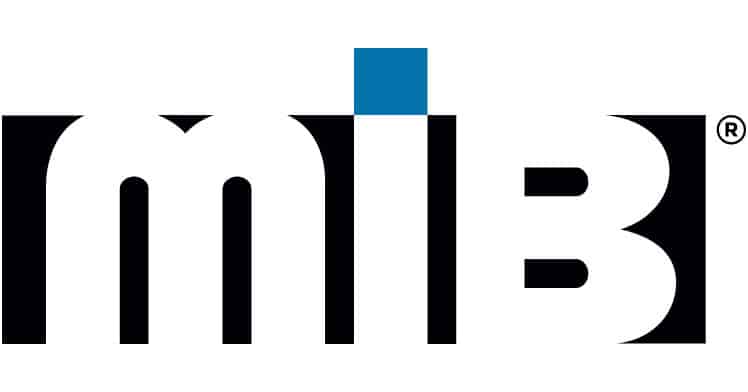The Medical Information Bureau (MIB) is an important part of the insurance application process. This guide provides a comprehensive overview of the MIB, including what it is, how it works, and how it impacts you as a consumer.
What is the Medical Information Bureau (MIB)?

The Medical Information Bureau (MIB) is a membership organization that collects information about insurance applicants in the United States and Canada. It was established in 1902 and was previously known as the Medical Information Bureau.
The MIB maintains a database of medical conditions, personal health information, and other details provided by insurance applicants. This data is made available to MIB member companies during the underwriting process to help identify omissions and inaccuracies on applications for life, health, and disability insurance.
The MIB is essentially an information-sharing service that allows member insurance companies to mitigate risk and prevent fraud. There are over 430 member companies that currently have access to the MIB database.
What Information Does the MIB Collect?

The MIB database contains several types of information collected from insurance applications, including:
- Medical conditions, diagnoses, and treatments
- Prescription drug history
- Family medical history
- Drug and alcohol use
- Driving violations
- Criminal records
- Participation in hazardous sports or activities
- Foreign travel
- Occupational data
It’s important to note that the MIB does not actually collect your full medical records. Any health conditions or treatments are coded by insurance companies before being added to the database. This coding system protects privacy by removing personal identifiers.
How Does the MIB Work in Canada?
The MIB operates as a secure platform for member insurance companies to share applicant information. Here is an overview of how the system works:
- You apply for life insurance, health insurance, or long term disability insurance with an MIB member company.
- The insurer asks for your permission to disclose information to the MIB. This is usually part of the application paperwork you sign.
- Once approved, details from your application are coded and submitted to the MIB database. This could include any medical conditions, prescription medications, driving history, or other application responses.
- When you apply for insurance coverage with another MIB member in the future, they can request access to your file.
- After receiving your authorization, the MIB will release your coded file to assist that insurer’s underwriting process.
- By reviewing your MIB report, the insurer can verify your application answers are complete and consistent.
- Your MIB file helps the insurer properly assess your risk profile and determine accurate pricing.
Why Do Insurance Companies Use the MIB?
Insurance companies contribute data to and utilize the MIB database for a few key reasons:
Risk assessment – The MIB allows insurers to identify potential errors, omissions, or fraudulent activities across insurance applications. This helps them properly evaluate a new applicant’s risk.
Verifying information – By comparing a new application to MIB records, underwriters can confirm medical history disclosures are accurate and complete. This is especially important for evaluating premium rates.
Preventing fraud – The MIB helps prevent people from omitting unfavourable information from applications to obtain cheaper coverage. This protects insurers from taking on high-risk applicants.
Keeping costs down – Fraud increases costs for insurance companies. The MIB allows them to minimize fraud, which helps keep consumer insurance rates as low as possible.
MIB Membership for Insurance Companies
Over 430 life, health, and disability insurance carriers across the U.S. and Canada currently belong to and participate in the MIB system. Membership is voluntary. Some of the major companies that use the MIB include:
- Sunlife
- AIG
- Manulife
- Canada Life
- Canada Protection Plan
- RBC Insurance
MIB members sign an agreement that allows them to disclose applicant information and make inquiries. Members pay an annual membership fee and usage fees for each applicant inquiry.
Is the Information in the MIB Correct?

While the MIB takes precautions to maintain accurate records, mistakes can happen. Here are some important facts about the reliability of MIB reports:
- Approximately 1% to 2% of MIB reports contain suspected errors.
- If you find an inaccuracy in your report, you can dispute it with the MIB. They will work with the insurance company to verify and correct any erroneous information.
- The MIB purges records that are over 7 years old. This helps eliminate outdated or irrelevant data.
- The information contained in the MIB alone does not determine your insurability. Insurers use it with your full application, medical history, and exam results.
- Even if there is adverse information in your MIB file, you may still qualify for coverage. Underwriters evaluate many factors to approve applications and set premium rates.
Does the MIB Report Impact Your Insurance Application?
In some cases, there may be information on your MIB report that requires clarification during the underwriting process. Here’s an overview of potential outcomes:
- No issues – If your MIB file aligns with your application responses, it likely won’t delay approval or affect your premiums. Underwriters will have the details needed to evaluate risk and pricing.
- Discrepancies – If your report reveals a condition you failed to disclose, the insurer will likely follow up to confirm details before finalizing your approval. Providing honest explanations usually resolves problems.
- Higher premiums – Adverse items on your MIB may lead to higher premium rates. But approval is still possible if you truthfully answer application questions.
- Application denial – Intentionally omitting health history could result in a denial. But if you answer all questions accurately, discrepancies uncovered during underwriting rarely lead to a declination.
- Opportunity to appeal – If declined due to your MIB report, companies must provide instructions for disputing and appealing the decision. But appeals are seldom required with open communication.
Shopping for Life Insurance With an MIB Record
If you’re concerned about getting life insurance coverage with a past condition on your MIB file, here are a few helpful suggestions:
- Be upfront about your full medical history when applying. Don’t try to hide anything that may turn up on your report.
- Ask insurance agents to pre-screen you for eligibility before making a complete application. This allows you to get tentative pricing.
- Consider “simplified issue” life insurance, which has limited underwriting requirements. MIB records often don’t affect eligibility.
- Seek policies offering “guaranteed issues” with no medical exam or health questions. Your MIB report won’t matter.
- Talk to an independent life insurance broker who can shop multiple carriers for the best rate. An experienced agent may have tips for navigating underwriting with an MIB record.
Is MIB Information Shared With Anyone Besides Insurers?

The MIB takes precautions to protect your data and only shares it with member insurance companies for legitimate underwriting purposes. Here are the policies regarding your privacy:
- Insurers – The MIB will only release your file to its member companies once you provide signed consent authorizing them access.
- Data coding – Insurers convert information into an encrypted code before submitting it to the database. This helps protect your privacy.
- Limited details – Actual medical records are not collected or disclosed. Only pertinent data required for underwriting is stored.
- No third parties – The MIB does not share or sell your personal information to any entity besides approved member insurers.
- HIPAA compliant – As a clearinghouse of health data, the MIB must follow HIPAA regulations related to securing protected health information.
- Consumer disclosures – You have the right to request a copy of your own MIB file. However, reports are not disclosed to any other private or public parties without your explicit approval.
How Does the MIB Help Consumers? (Cont.)
- Deters fraud – The MIB helps prevent applicants from lying or withholding information from insurance applications. This protects consumers from rate increases that stem from higher-risk policyholders paying artificially low premiums.
- Fair premiums – The MIB allows insurers to properly classify your risk so you pay accurate rates based on your health profile and application disclosures. You don’t subsidize premiums for fraudulent applicants.
- Lowers insurance costs – By minimizing fraud cases, the MIB database helps insurers reduce losses. This allows them to keep consumer premium rates as affordable as possible.
- Privacy protections – The MIB follows strict protocols to encode data and limit sharing to protect your personal health information. This avoids any breach of sensitive medical records.
- Peace of mind – Knowing the MIB will catch any intentional omissions or misrepresentations in your application allows you to have confidence in the fairness of the underwriting process.
MIB Contact Information
If you need to request your free annual MIB consumer file disclosure or dispute any erroneous information, you can contact the organization directly:
Phone: (866) 692-6901
Website URL: www.mib.com
Mailing Address:
MIB Group, Inc.
50 Braintree Hill, Suite 400
Braintree, MA 02184
Email: [email protected]
Should You Request a Copy of Your MIB Report?
Requesting a free copy of your MIB consumer file is recommended in certain situations:
- Suppose you plan to apply for life, health, or disability insurance coverage shortly. Reviewing your record allows you to verify its accuracy and provides insight into what insurers may ask about.
- You can get quotes with the most accurate information when shopping for a policy. This avoids any delays if you fail to disclose a documented condition.
- Anytime you believe your file may contain incorrect data that should be disputed. The MIB relies on consumers to request investigations of suspected errors.
- After being declined for insurance coverage based on your health, you should check for mistakes in your MIB report that caused the denial.
- Suppose it’s been over 6 months since you last confirmed your record. New data may have been added if you applied for insurance policies in the past year.
Critical Things to Know About the MIB
If you’re applying for individual life, health, or disability insurance soon, keep these essential facts about the Medical Information Bureau in mind:
- The MIB is not an underwriting company but an information exchange owned by member insurance companies. It does not approve or deny applications.
- Insurance companies can only access your records after first getting your signed approval.
- Disclosing all medical history upfront prevents adverse data in your MIB file from delaying your application.
- Mistakes are rare, but verify your report annually and dispute any incorrect information.
- The MIB helps combat insurance fraud, translating to fair consumer premium rates. It aims to help, not hinder, honest applicants.
- An accurate MIB file that aligns with your disclosures likely won’t impact your rates or eligibility for coverage.
The MIB Gives Insurers an Information Advantage
The Medical Information Bureau provides member insurance companies access to a database of applicant information that helps identify errors and omissions that could suggest fraud. This allows insurers to assess risk and classify policyholders for fair premium rates properly. As an insurance shopper, being aware of the MIB can help you ensure maximum transparency during the application process. Understanding the role of the MIB in underwriting leads to faster approval with accurate pricing.
Take Control of Your MIB Report
As an insurance shopper, teaching yourself about the Medical Information Bureau is the best approach. Understanding what it is, why insurers rely on it, and how it may impact your application puts you in control.
You also have rights to access your file, dispute errors, and limit consent for data sharing. Being an educated and empowered consumer allows you to navigate the insurance process smoothly.
The MIB provides valuable fraud prevention services to insurers. But it was not designed to obstruct applicants or make getting coverage impossible. Taking proactive steps allows you to avoid any delays or complications when applying.
Provide full disclosure on your applications, verify your record annually, and correct any inaccuracies immediately. Your MIB report will be an asset rather than an obstacle for insurers and consumers.













